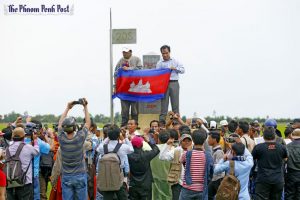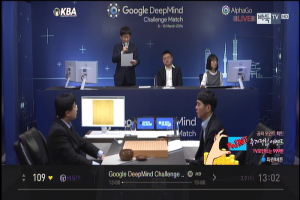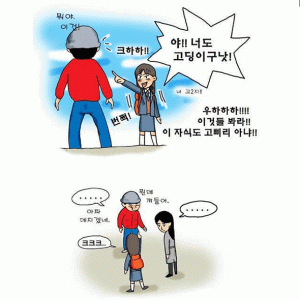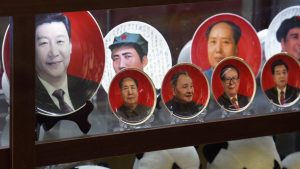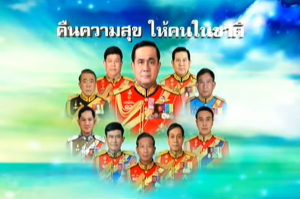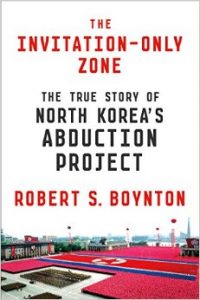Hedging without coordination? The Cambodian Government’s Policies Toward Vietnam
Memo #369 By: Thearith Leng – thearithleng2011 [at] gmail.com Hedging, a mix of bandwagoning (political deference) and balancing (varying forms of defiance), has become a popular concept to explain how small Southeast Asian states manage their relations with larger countries. Cambodia’s policies toward its more powerful neighbor, Vietnam, display such a mixed approach. But in […]
Hope or Worry for the Future? Google DeepMind’s AlphaGo vs. Lee Sedol in Seoul
Memo #368 By: Hyung Gu Lynn – hlynn [at] mail.ubc.ca If humans lose against artificial intelligence (AI) in a complex two-player game, is this a cause for hope or worry? The answer is – both. Currently battling in Seoul, South Korea, Google DeepMind’s AlphaGo, the powerful AI, is up 2-0 against Lee Sedol, the most decorated […]
Lest we forget: the undocumented children of East Malaysia
Memo #367 By: Linda A. Lumayag – llumayag [at] um.edu.my The multi-decade migration of Filipino refugees from the Philippines to Malaysia has important implications for human rights and citizenship. This movement and settlement processes have spotlighted issues regarding the rights of undocumented and multi-generational refugee communities. A protracted war between Muslim separatists and the government of […]
South Korean webtoons: challenges of translating the domestic to the global
Memo #366 By:Hyung Gu Lynn – hlynn [at] mail.ubc.ca South Korean webtoons have grown rapidly since their launch in the early 2000s, with over 6 million individual readers accessing platforms per day in the domestic market. Since 2014, major Korean webtoons platforms have been providing access to translated versions of select titles in the hopes of […]
Translating Korean Webtoons: An Interview with Bruce and Ju-Chan Fulton
Memo #365 By: Bruce and Ju-Chan Fulton – Bruce.Fulton [at] ubc.ca and ju.chan.fulton [at] gmail.com With a domestic market estimated at well over 6 million individual readers per day and valued at over $300 million in 2015, South Korean webtoons have grown rapidly in scale and variety since their initial appearance on major search portal landing pages in the […]
Hong Kong’s Fishball Revolution: A Shift in Protest Culture?
Memo #364 By: Justin Kwan – justin.kwan [at] alumni.ubc.ca The “Fishball Revolution,” triggered when police cracked down on unlicensed street hawkers in Mong Kok during the Lunar Year, attracted international media attention to Hong Kong. The demonstrations were the largest since the 2014 Umbrella Movement, but more importantly, reflected potentially significant shifts in Hong Kong protest […]
Xi Jinping as Chiang Kai-shek 2.0
Memo #363 By Jeffrey Wasserstrom – jwassers [at] uci.edu Which past leader of a one-party state is Xi Jinping most like? When he took power in 2012, some expected his rule to resemble that of Hu Jintao, his predecessor – a bland technocrat uninterested in shaking things up. Others suggested he might morph into a […]
The Thai Military, Coups, and the False Hope of Professionalism
Memo #362 By Jacob I. Ricks – jacobricks [at] smu.edu.sg Thailand is one of the most coup-prone countries in the world, having experienced no less than 19 coup attempts since 1932. The prevalence of military interventions casts doubt on whether Thai politicians will ever be able to reign in their armed counterparts. One prominent response to this […]
Is tourism the solution to insurgency in the North East of India?
Memo #361 By Aadil Brar – aadil.brar [at] alumni.ubc.ca The Northeastern states of India have experienced years of violence and separatist movements. The AFSPA (Armed Forces Special Powers Act), the act gives the military and air forces the authority to interfere in the internal affairs of the regional states, applies to the seven sister states, Arunachal […]
The Invitation-Only Zone: The True Story of North Korea’s Abduction Project (A “Behind the Book” Interview with Prof. Robert Boynton)
Memo #360 By Robert S. Boynton – robert.boynton [at] nyu.edu At the September 2002 Pyonygyang Summit between the heads of Japan and North Korea, Kim Jong-Il apologized to Koziumi Junichiro for some “rogue” North Korean agents that had abducted Japanese nationals during the 1970s and 1980s. This sparked saturation media coverage and amplified the voices […]
